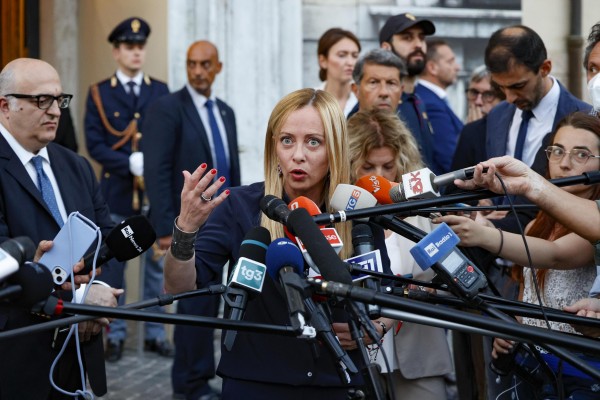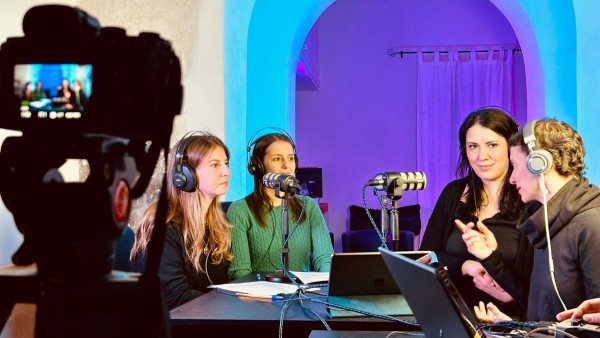H.E. Aleksander Kwasniewski
President of the Republic of Poland
Kancelaria Prezydenta RP
ul. Wiejska 10
00-902 Warsaw
Poland
Fax: (+ 4822) 695 12 53
Vienna, 29 September 2005
Your Excellency,
The International Press Institute (IPI), the global network of editors, media executives and leading journalists in over 112 countries, is concerned that a number of recent legal actions against the media, often seeking orders prejudicial to press freedom, are threatening the financial survival of these organizations.
One of the legal cases involves the Cypriot oil supplier J&S which has issued legal proceedings against the weekly magazine, Wprost. The case arises from three articles in the magazine discussing J&S’ monopoly over the Polish oil supply and alleged commissions paid to politicians and officials who helped the company reach its present position.
In issuing the legal writ, J&S sought an apology and an award of 2.5 million Euros in damages: an award that is to be donated to a charity. An initial hearing of the case was held on 25 August and the case is expected to last between two to four years. Representatives of J&S have apparently admitted that they want their claims to be “painful” for Wprost.
Another case concerns the Polish National Council of Credit Unions (“SKOK”), which is suing the Polish weekly Polityka. The case is related to an article written in 2004 titled, “Big Jump” (“Wielki skok”) containing a number of statements about SKOK’s business activities. SKOK claims that the article apparently tarnishes its good name.
In the writ, SKOK is seeking an apology, damages of 1.5 million Euros and a temporary restraining order prohibiting any articles about the union during the life of the court case. The motion by SKOK has yet to be agreed by the Polish courts.
In addition to its case against Polityka, SKOK has also filed two actions against Gazeta Wyborcza that are related to eight articles published over a period of more than a year that highlight alleged business improprieties. The first claim has been issued against the publisher, the editor-in-chief and the author of the article.
Once again, there is a demand in the writ for an official apology (which must be between 10 and 20 pages) and a restraining order preventing the newspaper from writing articles about SKOK. On 25 July, the court dismissed the motion for a restraining order, but the judgment apparently has no legal validity. The second SKOK claim is aimed at the editor-in-chief of Gazeta Wyborcza, but, as yet, no hearing has been set down.
While IPI makes no comment on the information contained in the articles written by Gazeta Wyborcza, Polityka and Wprost, we urge the relevant Polish courts to carefully consider these claims so that any potential award against the press avoids bankrupting them or causing a reduction in their weekly circulation. Any award against a publisher that causes the publisher to cease its activity contravenes the freedom of the press. While the media should be responsible under civil law for the content of their publications, the legal system of a democratic country should not be used to silence the media.
IPI also notes that in the claims filed against Polityka and Gazeta Wyborcza there is a demand for a temporary restraining order that would prohibit any publications about SKOK for the duration of the trial. The court’s support of such a motion would effectively constitute prior restraint or censorship, as the media organization would be unable to publish articles about SKOK, even on subjects unrelated to the original articles at the centre of the legal actions. Unfortunately, the Polish Code of Civil Proceedings in Article 755 enables Polish courts to issue such temporary restraining orders, although only in exceptional cases. If the court is to entertain such motions in all cases against the media, there is a real risk of undermining freedom of the press in Poland.
Therefore, IPI calls on the Polish Government to propose an amendment to the relevant Polish legislation, which would rule out the possibility of issuing temporary restraining orders against the media prohibiting them from publishing articles about a given person or subject.
The Polish government should also be mindful that any temporary restraining orders prohibiting the press should only be used in exceptional cases, and should only refer to specific press articles. IPI also urges the appropriate courts to carefully consider the motions for temporary restraining orders filed against Polityka and Gazeta Wyborcza and to avoid imposing prior restraint on these publications.
We thank you for your attention.
Yours sincerely,
Johann P. Fritz
Director


